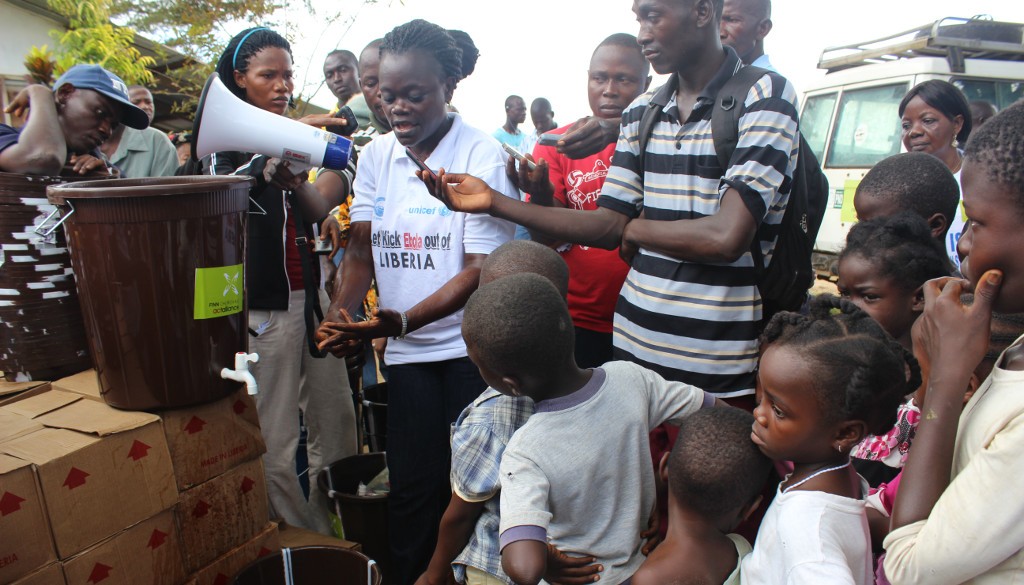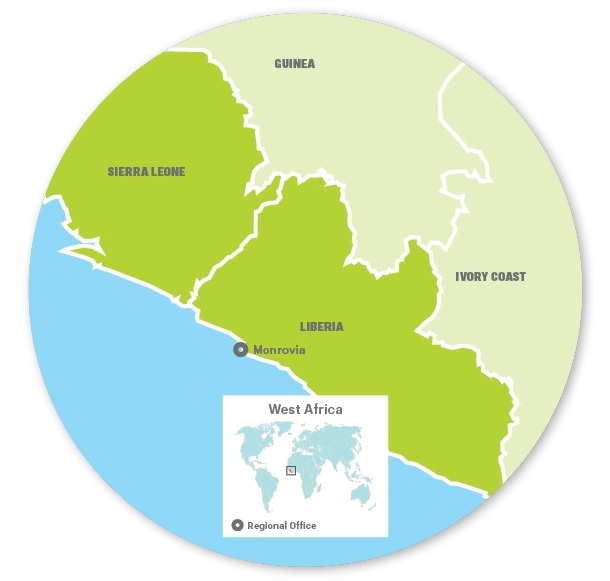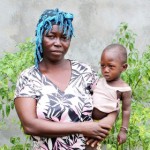
West Africa
In West Africa, FCA operates in Liberia and Sierra Leone. In 2014, development cooperation projects halted due to the Ebola epidemic, and resources were redirected to Ebola work. Since the beginning of 2015, implementation of the projects have started again.
In West Africa FCA has
Ebola prevention in West Africa
In LIBERIA, Finn Church Aid focuses on supporting the financial and social empowerment of women. Livelihood opportunities for women are developed through education and supporting the farming of vegetables and poultry. Women are given education on their personal rights.
FCA also offers educational opportunities for refugees from Côte d’Ivoire. In 2014, 450 young people received secondary and upper secondary education in the refugee camps of Bahn and PTP. The youth forced to flee Côte d’Ivoire are taught in their native language, French, following the Ivorian school curriculum. Over 90 % of the students passed their final exams and graduated from upper secondary school at the end of the year. A kindergarten operates in both camps, which allows young mothers to go to school without having to worry about the well-being of their children.
In SIERRA LEONE, FCA supported four vocational education centres, which offer education particularly to young women. Communities are supported in implementing new cultivation methods and urged to participate more in planning their own development. In addition, FCA strengthens the ability of traditional and religious leaders to prevent and solve local conflicts within the communities.
In August 2014, Finn Church Aid was forced to seize almost all development cooperation projects in Liberia and Sierra Leone, due to the Ebola epidemic. Public assemblies were forbidden, schools were closed and people’s movements within and between the countries were restricted.
In Liberia, FCA participated in the fight to stop the spreading of the epidemic by distributing materials to 2,650 households. Two thousand buckets, soap and chlorine were given to households, mattresses, among other products, to health care clinics.
Local and religious leaders, young people, women’s groups’ members and community Ebola task forces, around 300 people in total, were trained to spread information about the disease. The information reached 70,000 people, teaching them how to prevent infection and maintain proper hygiene.
Community leaders were educated in psychosocial support, directing the infected to get proper treatment and in preventing stigmatization. In Sierra Leone, FCA trained volunteers to act as instructors in the communities, supplied isolated households with food, educated people through radio and supported local Ebola prevention task forces. In the Bo District, FCA supported the meeting of the chiefs where government action for Ebola prevention was discussed.


